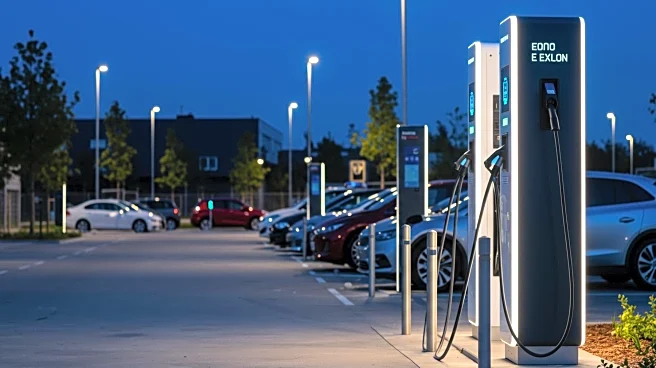What's Happening?
President Trump and the Fossil Fuel Party have initiated policy changes that are affecting the electric vehicle (EV) industry. These changes include the removal of EV tax credits and the relaxation of federal and California's CO2 pollution reduction requirements for automakers. As a result, major automakers like Tesla, Rivian, Ford, and General Motors are adjusting their strategies. Tesla anticipates a slowdown in the ramp-up of new models due to reduced incentives, while Rivian expects a decrease in revenue from regulatory credits. Ford is reconsidering its EV production plans, potentially shifting focus to Europe or internal combustion engines. General Motors foresees challenges in EV profitability due to the removal of government incentives.
Why It's Important?
The policy changes under President Trump could significantly impact the U.S. automotive industry, particularly the transition to electric vehicles. Automakers may face financial challenges and reconsider their investment in EV technology, potentially slowing down the shift towards sustainable transportation. This could affect the U.S.'s position in the global EV market and hinder efforts to reduce carbon emissions. The changes may benefit fossil fuel interests but could lead to increased pollution and environmental concerns.
What's Next?
Automakers are likely to continue adjusting their strategies in response to the policy changes. This may involve shifting production to regions with more favorable regulations or investing in alternative technologies. The industry will closely monitor the political landscape and potential future policy shifts that could further impact EV development and adoption.









